Brian Kemp's Private Political Party Financed Under SB221 Must be Shut Down
Unlimited Corporate Campaign Slush Funds Must No Longer be Tolerated in Georgia
During the 2021 Georgia General Assembly, at the obvious behest of Governor Brian Kemp, Republican Senators Mullis (R-53rd), Miller (R-49th), Dugan (R-30th), Gooch (R-51st) and Kennedy (R-18th) introduced a bill which would fundamentally change the landscape of Georgia politics, effectively coronating Kemp, elevating his power from that of mere state governor, to that of veritable state king. SB221, a partisan bill passed by Republicans in both houses along party lines, empowered newly-crowned “King Kemp” to accelerate an existing program apparently bent on suppressing the political power of Georgia’s traditional voter-centric, grass-roots-based election system, and replace it with the power generated from the solicitation and receipt of vast quantities of dollars secured from anonymous donors, who could be situated literally anywhere in the world.
SB221 was one of those, “Governor’s Bills” we hear about each year. Even though the governor is part of Georgia’s EXECUTIVE branch of government, rather than LEGISLATIVE branch, for some reason not obvious to me, each year the office of Georgia’s governor is allowed representation in both chambers of the General Assembly. And each year the governor assigns his legislative representatives the task of proposing pet legislation, effectively coercing bills into passage by the power of the chief executive’s office.
SB221 is not a terribly long or complicated bill. Its terms come to a point quickly, providing exactly what the governor desired at the time to become law. Judging by events, no changes would be allowed.
SB221 ordained a new campaign financing vehicle into law, a “leadership committee,” empowered to establish a veritable “slush fund,” the size of which would soon dwarf the capabilities of traditional political parties or down-ballot candidates to raise money. Here is how the bill defines a “leadership committee.”
As you can see, a leadership committee really has nothing to do with leadership per se, and one may be constituted by a sitting governor or lieutenant governor, or a party nominee for either office. But SB221 also opens the door for party caucuses of either legislative body to constitute leadership committees, further providing:
The purpose of a leadership committee is simply to solicit and receive contributions, outside of the traditional campaign financing guidelines, whether “in-kind” or in cash.
And as we will see, when put to practice by the governor the term, “persons,” will not confine itself to individual, natural people, but will also encompass, “legal persons,” such as corporations and LLCs. SB221 was careful not to define the term, “persons,” possibly such that it might be thinly construed by legislators, but broadly interpreted in practice, a representative example of how they make-the-sausage during the Georgia General Assembly.
SB221, a partisan bill passed by Republicans in both houses on party-line votes, empowered newly-crowned “King Kemp” to accelerate an existing program apparently bent on suppressing the political power of Georgia’s traditional voter-centric, grass-roots-based election system, and replace it with the power generated from the solicitation of vast quantities of dollars secured from anonymous donors, who could be situated literally anywhere in the world.
The provisions of SB221 making this law so extraordinary are the following, provisions which effectively remove-the-training-wheels from previous practices of political fundraising, curtailing any prior limits on what all those “persons” may contribute:
So, there you have it, the real purpose of SB221, possibly not completely evident to legislators who voted for it unknowingly in 2021. In practice, SB221 allows any “legal person” to contribute unlimited funds in support of then governor, now effectively king, Brian Kemp. And King Kemp has used that feature to its utmost, raising over $50 million in his Georgian’s First Leadership Committee, as last reported following the end of June, 2023.
SB221 “Fast-Tracked” Into Law With No Public Hearing
During the 2021 Georgia General Assembly, Lieutenant Governor Geoff Duncan “fast-tracked” SB221 through the Senate, orchestrating its progress with minimal discussion, minimal active consideration and, importantly, NO PUBLIC HEARING. On February 22, 2021, SB221 stealthily dropped into the Senate hopper. Wasting no time, the next day, February 23rd, Duncan scheduled the Senate’s first required reading. Once read, rather than referring SB221 to a Senate committee for consideration and a public hearing, Duncan bypassed the normal legislative process, assigning the bill directly to the Senate Rules Committee, normally the final step in bringing a bill to the floor for a vote. The next day, February 24th, Senate Rules returned the bill, favorably reporting it back to the Senate with no changes. The Senate read the bill for a second time on February 25th, and a final time on February 26th, completing the presentation requirements in the minimum time necessary under Senate rules. Senator Brandon Beach temporarily delayed the bill’s final passage, introducing a floor amendment, which immediately failed. After the 3rd reading, Duncan brought the bill to a vote and passed it by a margin of 30 to 21. Notably, only three Republican Senators, Brandon Beach (R-21st), Greg Dolezal (R-27th) and (now Lieutenant Governor) Burt Jones (R-25th), opposed the bill, along with every Senate Democrat in the chamber.
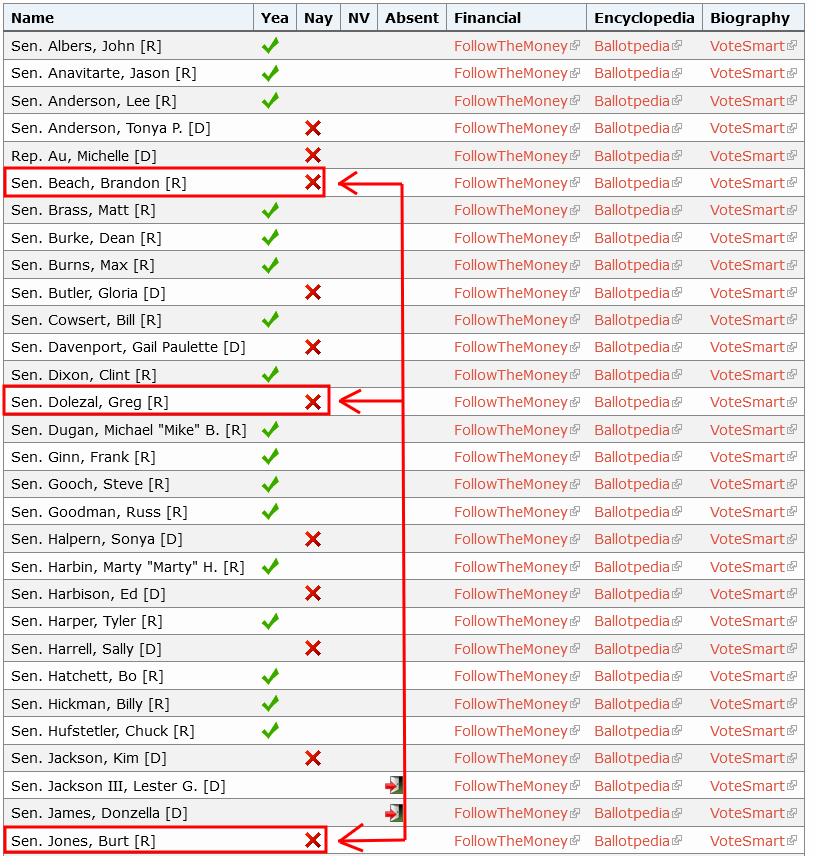
SB221 met even less Republican resistance in the Georgia House, as Speaker Ralston cleared the tracks for the governor’s railroad job to pass through. While Democrats offered a tray of concerns, mainly regarding the question whether political contributions could be accepted while the General Assembly convened, no amendments or changes made it into the bill. Concerns over the issue of receiving contributions during the General Assembly, which I have heard voiced by legislators as well, appear to be inauthentic, a smokescreen of sorts to hide the true intentions of SB221. That is because there is nothing written into the bill to address that concern, and one need not legislate the kinds of unbridled fund-raising authorities SB221 empowers simply to deal with a timing issue. SB221 passed the Georgia House on March 18th by a unanimous vote of Republican House members. Because the bill remained unchanged from the version arriving from the Senate, the upper body would never consider it again. Passed unchanged by both chambers, SB221 next presented itself at the governor’s desk, at which it became law with Kemp’s signature on May 4th.
As a result of becoming law, SB221 has effectively overwritten many of the traditional party-based election intentions prescribed in Title 21 of Georgia Law, effectively cancelling them by virtue of a corporate-based campaign-financing and influence-purchasing scheme in which donors, their identities shrouded behind the veils of corporations or LLCs, may contribute unlimited sums of money or valuable in-kind services, their names remaining unknown forever, dark money flowing into Georgia from all corners of the country, conceivably originating from literally anywhere, or from anyone around the world. As a result, while most voters have no idea that kind of potential money-laundering operation would be possible under Georgia law, the fact is that the power over Georgia’s campaign fund-raising processes, intended and written into law under Title 21, practiced by all parties since antiquity, has been cleverly diverted away from the people, and channeled to a corporate-based, anonymously funded, political money-raising machine. Sadly, in the ensuing three years since the bill’s passage, hardly anyone has noticed.
Constitutional Conflicts
Since SB221 becoming law, Georgia’s election system has been run in notable conflict with meaningful requirements prescribed in both the US and Georgia Constitutions. Rather than remaining part and parcel of a “republican form of government,” as guaranteed under Article IV, Section 4 of the US Constitution, by empowering corporate entities to make unlimited political contributions from anonymous sources, those contributions going directly to the most powerful elected office holder(s) in state government, a practice which has the effect of overwhelming the natural voice and will of the people, the State of Georgia under Brian Kemp has assumed an identity similar to that of a corporate-fascist state. If you have never heard that term, here is what it means:
CORPORATE FASCISM is a system under which the people’s government, over time, becomes so heavily influenced by corporate special interests, interests which have the means necessary to purchase operational influence at the very highest levels of the people’s government, that the government is for all practical purposes, eventually taken over by those corporate special interests. At that point, the government becomes almost solely a tool of those corporate special interests.
The operation of a corporate-controlled state government is in conflict with the requirements of any constitutional republic, which, as Lincoln appropriately described at Gettysburg, is strictly government “of, by and for the people.”
SB221 is also in principle conflict with the Georgia Constitution, which recognizes:
SECTION II.
ORIGIN AND STRUCTURE OF GOVERNMENT
Paragraph I. Origin and foundation of government. All government, of right, originates with the people, is founded upon their will only, and is instituted solely for the good of the whole. Public officers are the trustees and servants of the people and are at all times amenable to them.
Paragraph II. Object of government. The people of this state have the inherent right of regulating their internal government. Government is instituted for the protection, security, and benefit of the people; and at all times they have the right to alter or reform the same whenever the public good may require it.
Thus, according to Georgia’s Constitution, it is solely the right of the people to regulate their internal government, not the right of private, anonymous interests whose identities are forever concealed behind a corporate veil. That is because all true government is founded upon the WILL OF THE PEOPLE, FOR THE GOOD OF THE WHOLE, not the will of well-heeled, hidden special interests.
Who Would Propose Such Egregious Legislation?
Perhaps as much as any action undertaken by Brian Kemp as Georgia’s Governor, his foisting of SB221 during the 2021 Georgia General Assembly, aided by Generals Duncan and Ralston conducting its passage in their respective houses, provides Georgians, both Republican and Democrat, defining insight to understand Kemp’s political intentions. Prior to SB221, Georgia’s Governor’s seat had long been regarded one of the most powerful in the country. After becoming law, SB221 handed Georgia’s new “king” the wherewithal to eschew any meaningful interaction with, or responsibility toward the peasantry, they being the members of the Georgia Republican Party (whatever GRP even means at this point). The power King Kemp possesses under SB221 transcends any power he would have at this point of his governorship without it. Without SB221, Kemp would be just another lame duck governor. But with it, as I wrote in April, “Brian Kemp Has Become His own Political Party, Say[ing] 'FU' to Georgia GOP.” Emboldened by an average annual cash flow of tens of millions, much of it contributed to Kemp anonymously from behind corporate veils, last February Brian Kemp confirmed his intentions, declaring to his assembly of elite contributors, “We can no longer rely on the traditional party infrastructure to win in the future,” rubbing his newly-established source of political power into the faces of hard-working, rank and file Georgia Republicans.
CORPORATE FASCISM is a system under which the people’s government, over time, becomes so heavily influenced by corporate special interests, interests which have the means necessary to purchase operational influence at the very highest levels of the people’s government, that the government is for all practical purposes, eventually taken over by those corporate special interests. At that point, the government becomes almost solely a tool of those corporate special interests.
Below you will find a few representative lines from Kemp’s June 30, 2023 Georgian’s First Leadership Committee disclosure statement:
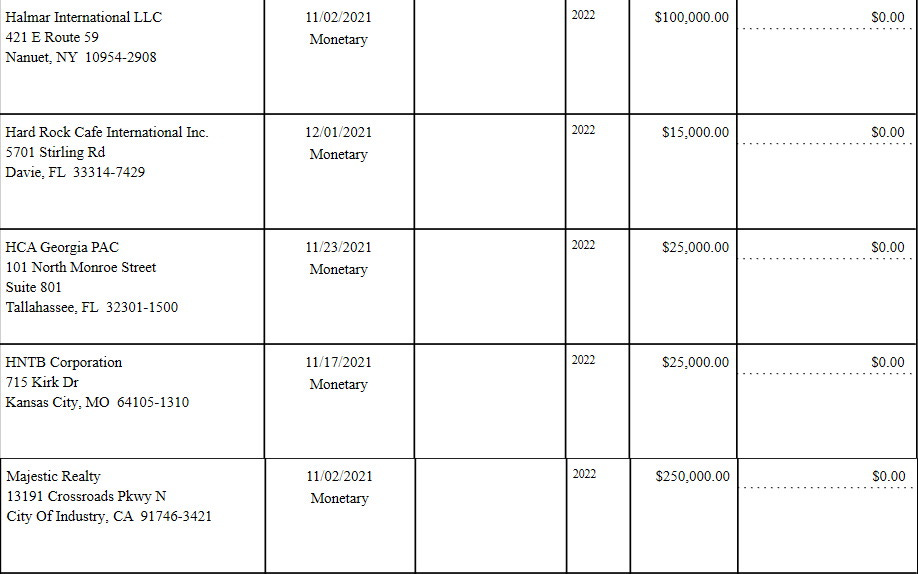
Who, for example, are the owners of a realty company in California, who thought so highly of Georgia’s Governor Brian Kemp as to award him one-quarter million dollars in November of 2021? From where and from whom did that out-of-state entity, four thousand miles from Georgia, receive those funds? We don’t know the answers to those questions and we never will. Any of these firms, or tens of others showing up on this report, could represent foreign owners and foreign contributors. Those owners or contributors could be in China…or Russia…or Ukraine…or even Iran for all we know. The repeal of SB221 is a NATIONAL SECURITY ISSUE. And that is just one of several major problems here. Another is that, prior to SB221 passing into law, from any of these entities Brian Kemp would have been limited to receive a maximum of $7600, an amount which he could use in a party primary, and an equivalent amount in a general election. There are very few grass-roots Georgia Republicans who can compete for a governor’s attention, or favor, against corporate entities from all over the country, who are sending unlimited amounts of dollars, deriving funds from unknown sources, conceivably anywhere in the world.
Enriched with Dark Money, King Kemp Turned His Back on Working Georgia Republicans
Last summer, King Kemp ignored his responsibility as the leader of his party, to address the party faithful at the Columbus Republican Party Convention. In so choosing, His Royal Highness demonstrated to Georgia, and the world, that he no longer regards the traditional, Title 21 Republican Party a viable, political vehicle fit for its purpose. By virtue of SB221, King Kemp has effectively become his own political party, vastly more powerful than any Republican organization in the state. And, obviously, the ambition to become not only the most powerful governor in the history of Georgia, but also, to take certain power with him when he leaves, are excellent reasons King Kemp would foist SB221 upon the Georgia General Assembly in 2021.
Where Do Leadership Committee Funds Go After Kemp Leaves Office?
You have heard it many times, “You can’t take it with you.” Generally that idiom is true. But is it really true in the case of the governor’s leadership committee war chest? No, it does not seem to be true at all. Regarding disposition of those funds, according to SB221,
Thus, SB221 opens the door for King Kemp to transfer any remaining funds from his Georgian’s First Leadership Committee to a new committee, such as one created to support a successor to win coronation in 2026, forever beholden to his or her benefactor, Kemp. But that’s not all. Notice SB221 also allows Kemp to transfer remaining funds “as provided by Code Section 21-5-33.” So, let’s look at what that section provides.
According to SB221, when leaving office Brian Kemp may do one or all of the following with the remaining funds of his leadership committee:
Donate the funds to charity;
Donate the funds to a non-profit organization subject to certain limitations;
Transfer the funds to a political party or another candidate;
Give the money back to the original contributors;
Transfer the funds to a future gubernatorial candidate;
Repay himself for personal funds expended in his political campaign;
Transfer the funds to a PAC of his choice.
Of those alternatives, choices 2, 3, 5 and 7 conceivably allow Brian Kemp to retain at least loose control over the future use of funds remaining in his Georgians First Leadership Committee once he is out of office. The possibilities are numerous. For example, over the past two years Brian Kemp has been establishing non-profit corporations, termed “Republican Coalitions,” in counties all across Georgia. As we witnessed last year, those private non-profits are set up to compete against local and county Republican parties full of MAGA supporters. To that effect, Kemp apparently used his influence to take advantage of a loophole in a Cherokee County ordinance governing the manner in which county election board members are appointed, the county commission choosing a Republican Coalition “Kemp” candidate to fill that spot rather than a Republican Party candidate, as the law obviously intended. Thus, we see the groundwork Kemp has been establishing to subtly corporatize county election systems around the state. Furthering that purpose, Kemp could transfer certain remaining funds to his county-based Republican Coalition non-profit corporations, or even establish a new non-profit corporation to receive those funds, ostensibly outside of his control.
Kemp could conceivably transfer the money to a campaign for wife Marty to run for governor in 2026. If you think that not credible, you were not around when Alabama Governor George Wallace ran wife Lurleen as a “caretaker” governor in 1966. “Mrs. George Wallace” ran and won the election, but unfortunately died of cancer two years later.
Kemp could transfer the funds to a PAC of his choice, which, with a nod and a wink from Kemp, would use those funds to support a future run by the former governor to become United States Senator.
Kemp could transfer the funds to the Republican Party, which would be okay under certain conditions, or even another party he might start up, which would not be okay.
Brian Kemp might even use the present influence of his position to legislate provisions, in addition to those originally adopted under SB221, to give him additional options when his term ends in 2026.
But if you think Georgia’s “King” Brian Kemp might simply walk away from all that money continuing to flow as we speak into his Georgian’s First Leadership Committee, in excess of $50 million as of the last reporting date, June 30, 2023, well, I’m not sure you are seeing the situation for what it is.
Summary-The Republic Must be Restored
SB221 was passed into law with no input from Georgia citizens. In short, SB221 must be repealed, the funds remaining in all leadership committees established under its provisions either prorated back to the original contributors, or transferred to NON-INCORPORATED Georgia political parties, properly registered as provided under OCGA §21-2-110. The good people of Georgia have suffered corporate influence subverting the purposes of state government too long. Their good nature has been taken advantage by unscrupulous politicians using the power of unlimited corporate fundraising to control the levers of government, perennially promoting and aiding private interests at public expense. No more. The time to repeal SB221 is now. I urge all Georgians to contact their representatives and senators to solidify a movement to repeal SB221 during the 40 days of the Georgia General Assembly commencing Monday, January 8, 2024. SB221 was a railroad job. The long black train of dark money must be derailed.




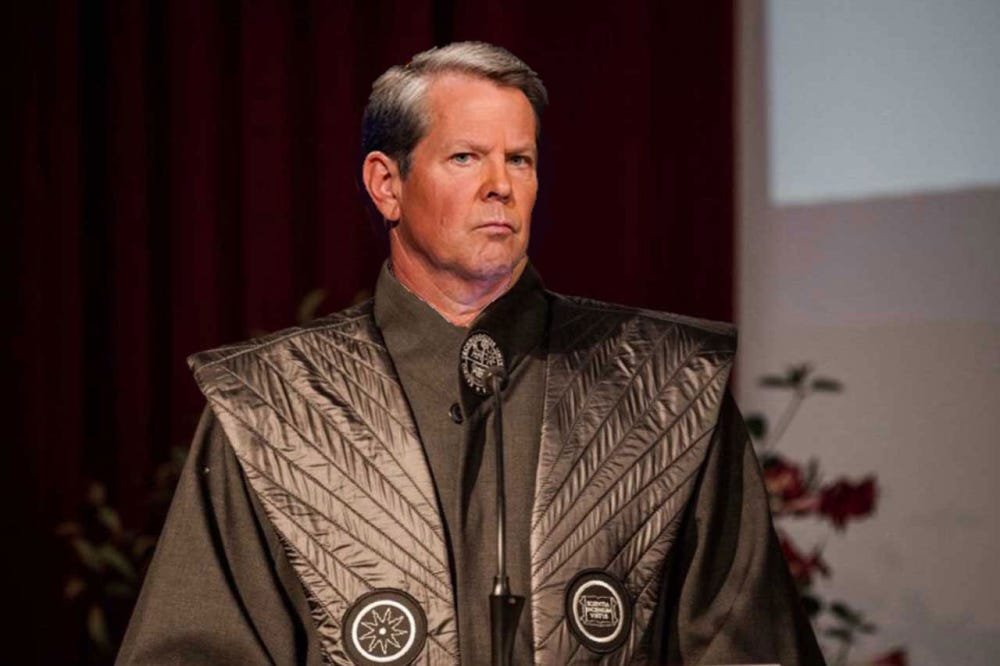




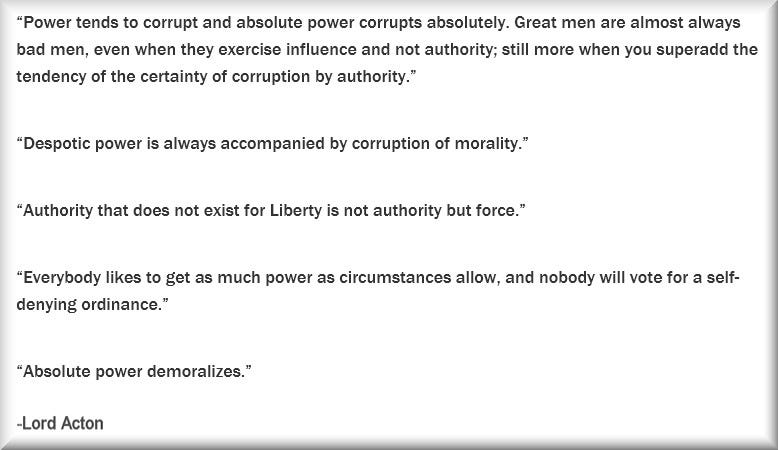

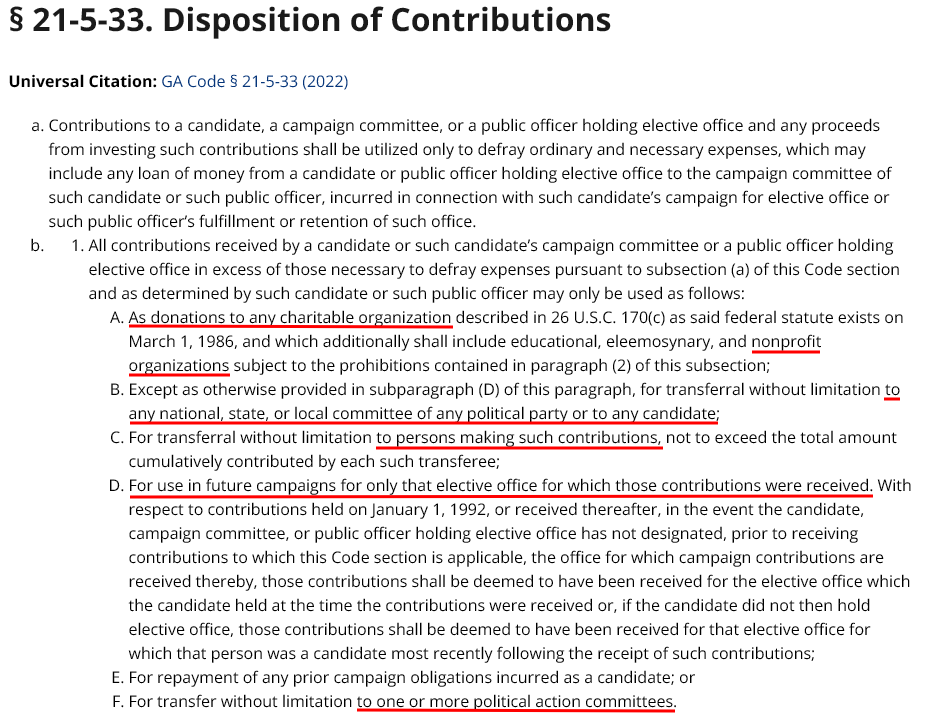
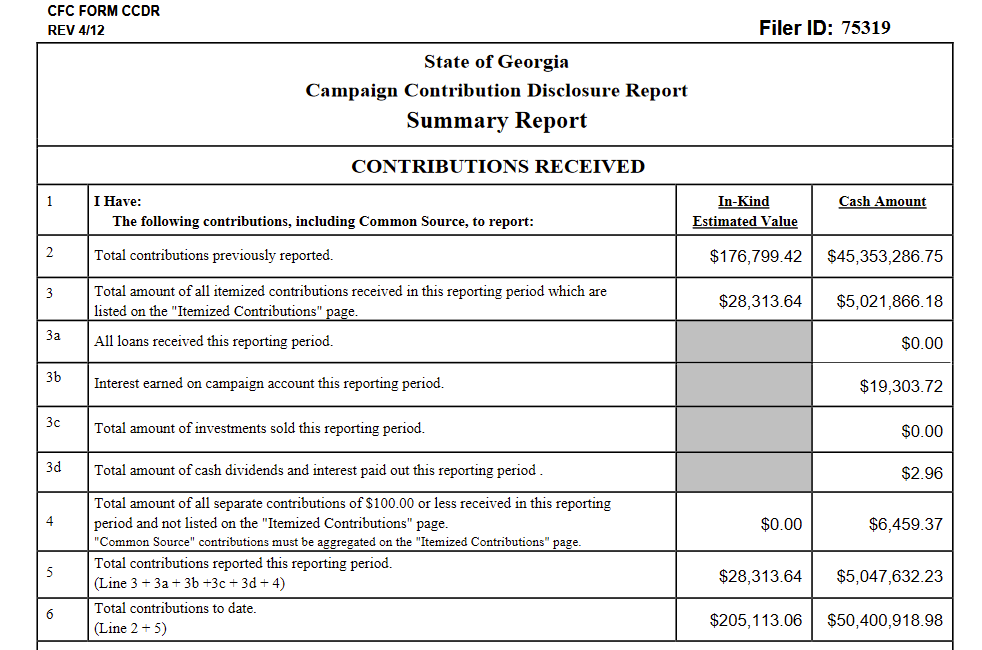
I'm always amazed at the amount of research you're able to put together to make your point. The way the dictator, I mean governor operates is so crooked, but no one is able to stop him. He is destroying the county where I live, Morgan County. This rivian EV plant he's backing is circumventing local zoning laws, tax laws, state laws and federal laws. But I hope you're able to continue to expose him and his cronies every chace you get!!!
This is horrifically alarming but I'm proud of those 3 Senators who opposed the bill!
Do you think the problem is that most of the legislators don't take the time to thoroughly read and understand the consequences of bills before they cast their vote?
One ray of hope is that we now have Burt Jones in the Lieutenant Governor office.
As for Majestic Realty Co, apparently they have a branch office in Atlanta.